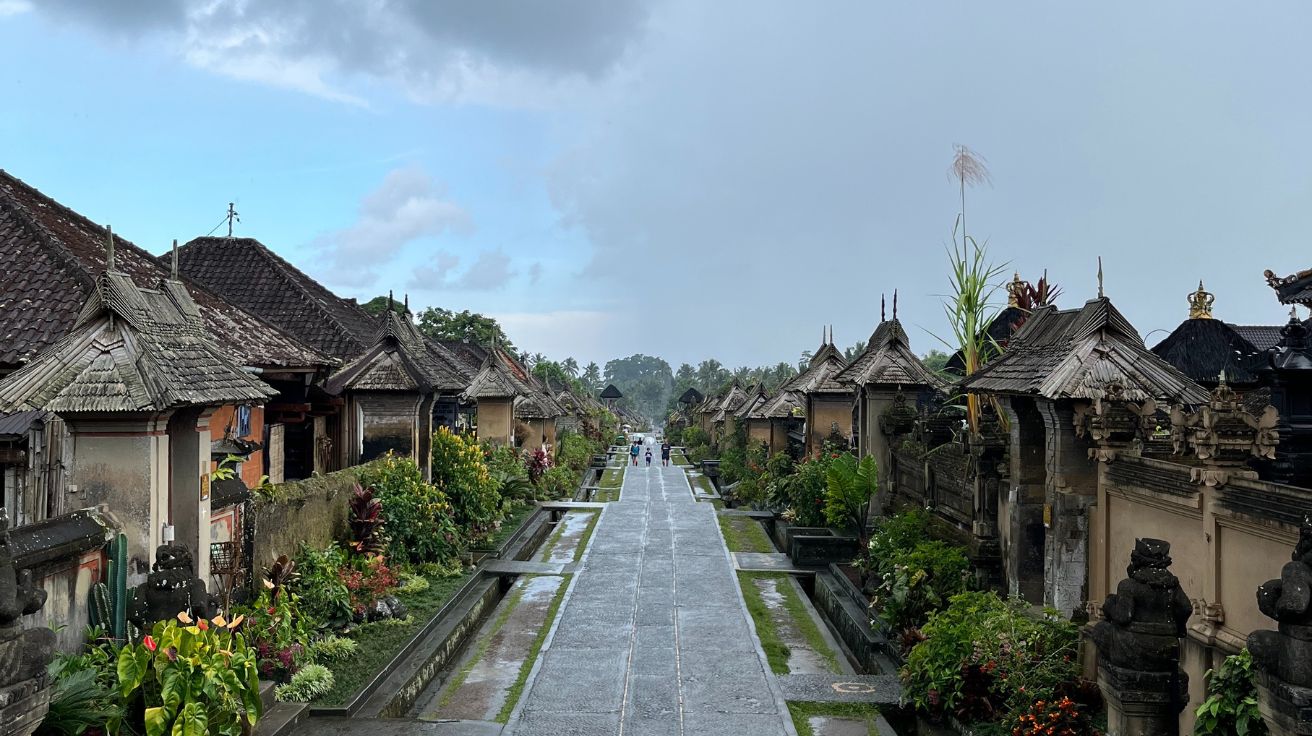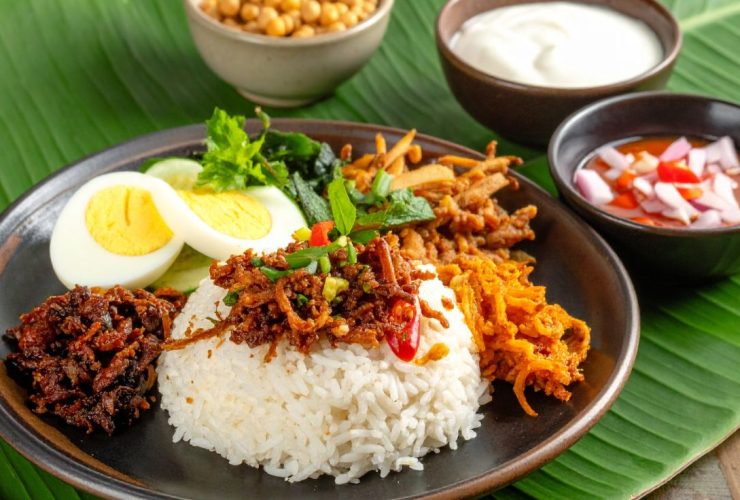Imagine an entire island being completely silent for a whole day. This isn’t just a thought. It’s a real event in Bali.
Nyepi is a special cultural holiday that makes the island very quiet. It’s a day for silence, meditation, and thinking deeply about ourselves.
The whole area stops working. Streets are empty, airports shut down, and lights get dimmer. This gives us a rare chance for true inner peace away from today’s noise.
For those visiting, Nyepi is more than just a curiosity. It’s an immersive spiritual experience that challenges our need for constant noise and activity.
To join in respectfully, you need to understand its importance. This guide will help you get ready for a meaningful time during the 2026 celebration.
What is Nyepi Day? Understanding Bali’s Day of Silence
Nyepi, Bali’s Day of Silence, is more than just quiet. It’s a time for everyone to purify and align with the universe. For 24 hours, Bali is still. Streets are empty, airports shut, and lights dim.
This stillness is not just the absence of life. It’s a powerful presence of spiritual intent.
To truly understand the Bali Nyepi Day, look beyond the surface. It’s the peak of a multi-day ritual to reset Bali’s spiritual energy. The silence is the most powerful step.
The Spiritual Significance of Silence
The quiet of Nyepi has a deep purpose. Balinese Hindus believe it purifies the island and its people. The stillness creates an illusion of a deserted land.
This illusion tricks evil spirits, or bhuta-kala, into thinking Bali is empty. They pass over, leaving the island clean for the new year.
This practice is based on Brata, disciplined self-control. Silence is a spiritual exercise. It clears your mind, making your inner voice clearer.
This day of restraint is a form of worship. It strengthens resolve for individuals and communities. The nyepi day traditions show the physical side of this spiritual work.
Key Philosophical Principles Behind Nyepi
Nyepi connects deeply with Hindu Balinese philosophies. A key principle is Bhuta Yadnya. This is about rituals to neutralize negative forces. The parade and silence are part of this.
First, the parade acknowledges these forces. Then, silence creates a space where they can’t thrive. This balance is crucial.
The observance also follows Tri Hita Karana. This philosophy aims for harmony in three areas: with God, people, and nature. Nyepi honors all three.
Silence connects us with the divine. Social and work bans strengthen community bonds. Travel and electricity bans respect nature.
These nyepi day traditions guide us to inner balance. External restrictions prompt internal reflection. This creates a clean start for the island and us as the new year begins.
Understanding these principles changes how you see the Bali Nyepi Day. It’s no longer just a travel restriction but a cultural immersion. You see a society valuing spiritual well-being above all, for one day.
Nyepi Day 2026 : Date and Astrological Significance
Nyepi Day 2026 is not fixed like other holidays. It moves based on the moon and priestly decisions. The Balinese New Year 2026 will likely be in 19 March 2026.
Knowing when Nyepi is helps you plan your trip. You can enjoy the lively pre-Nyepi events and then take part in the Day of Silence.
How the Saka New Year Date is Determined
The date for Nyepi comes from the Hindu Saka calendar. This calendar is based on the moon and the sun. Each month starts right after the new moon.
Bali’s high priests, the Sulinggih, make the final call. They look at the moon and special stars to decide when the Saka New Year starts.
Why the Date Changes Each Year
The Saka lunar calendar is shorter than the solar year. This means the Saka New Year moves about 11 days each year. It’s like Easter, which also follows a lunar cycle.
Nyepi’s date is between March and April on our calendar. This shows how nature’s cycles are more important than our schedules. When planning for 2026, remember this is a key part of the holiday’s spirit.
How to Prepare for the Melasti and Ogoh-Ogoh Parades
Bali’s vibrant energy doesn’t fade for Nyepi; it builds up in two amazing preludes. These pre-Nyepi events are stunning to see and full of deep spiritual meaning. Taking part in these nyepi festival activities helps you understand the deep quiet that follows.
Step 1: Witness the Melasti Purification Ceremony
Three days before Nyepi, the Melasti ceremony is a beautiful procession of purification. People in bright white and traditional clothes carry sacred statues and objects to the sea. The sea is believed to have holy water, cleansing the pratima (sacred effigies) and souls before the new year.
This is a serene and colorful sight. You’ll see prayers, offerings, and the washing of artifacts in the waves. It’s a ritual that cleanses nature and humanity, readying the island for a fresh start.
Best Beaches to Observe Melasti
Ceremonies happen all over the island, but some beaches are great for visitors. Sanur Beach has a long, calm shoreline for easy viewing. Jimbaran Bay offers a dramatic backdrop, often with ceremonies at sunset.
Nusa Dua’s beaches are also excellent, known for their organized and beautiful settings. Remember to watch respectfully, dress modestly, and avoid flash photography during these sacred moments.
Step 2: Experience the Ogoh-Ogoh Parade on Pangrupukan
The evening before Nyepi, known as Pangrupukan, is the opposite of the coming silence. The island comes alive with noise, fire, and fantastic creatures. This is your chance to experience one of Bali’s most energetic nyepi festival activities.
Young men from local banjars parade giant papier-mâché monsters called Ogoh-Ogoh through the streets. The atmosphere is loud, with traditional gamelan music, shouts, and the general clamor meant to drive away evil spirits.
These towering Ogoh-Ogoh are not just for show. Each one represents negative human traits and spiritual demons. They embody vices like greed (loba), anger (krodha), and ignorance.
The creation and parade of these monsters is a symbolic act of bringing our inner darkness into the light. By the end of the night, many Ogoh-Ogoh are ritually burned. This burning represents the purification of these negative elements from the community, completing the spiritual cleansing that began with Melasti.
Witnessing this vibrant parade gives you a powerful insight into the philosophical balance of Nyepi. You see the conscious expulsion of chaos, making space for the profound peace and introspection of the Day of Silence.
How to Prepare Logistically as a Visitor for Nyepi
The Day of Silence in Bali means no activity for 24 hours. Visitors need to plan ahead for their comfort and respect for local customs. This guide will help you enjoy the silence with ease and respect.
Step 1: Secure Your Accommodation and Provisions
Choosing where to stay is key for Nyepi. Book your hotel or villa months in advance to avoid missing out. Make sure your place knows and follows the full rules. Many places offer special menus and activities for guests.
What to Stock Up On Before the Silence Begins
For 24 hours, all businesses will be closed. This includes places to buy food and money. Stock up the day before with:
Drinking water – Have enough for the whole day.
Snacks and easy meals – If your hotel doesn’t provide all meals, have some ready.
Cash – Get enough money before the closure, as digital payments might not work.
Entertainment – Bring books, downloaded media, or games for offline fun.
Basic medications and toiletries – You won’t be able to buy these during the day.
Step 2: Understand Transportation and Service Closures
From 6 AM on Nyepi until 6 AM the next day, no one can travel. The Pecalang patrol the streets to keep this rule. Only emergency vehicles with special permits can move. Taxis, ride-shares, scooters, and bicycles won’t be available. All public services and tourist spots will be closed.
Airport Operations and Special Exemptions
Ngurah Rai International Airport will be closed for 24 hours. No flights will come or go. Airlines adjust their schedules for this time.
If Nyepi falls on your travel dates, you must plan your arrival and departure for the days before or after. Only very few exceptions are made for emergencies or security needs. These are rare and only for essential people.
With your stay and supplies ready, you can enjoy Nyepi with confidence. This preparation lets you focus on the deep reflection and renewal that Nyepi offers.
How to Observe the Four Main Prohibitions (Catur Brata)
To truly experience Nyepi Day 2026 in Bali, following Catur Brata is key. These four prohibitions are not just rules. They are the heart of Bali’s deep transformation. Together, they create a powerful silence that cleanses the environment and our souls.
Traditional village guards, the Pecalang, enforce these rules for everyone’s good. Your help and understanding are crucial for a respectful and meaningful experience.
The Rule of Amati Geni: No Fire or Light
The rule of Amati Geni asks you to use less fire and artificial light. It’s about purifying our inner desires. This means turning off outdoor lights and closing curtains at night.
While some indoor light is okay for safety, the spirit of the rule is to embrace darkness. This act connects you deeply to the calm of Nyepi Day 2026.
The Rule of Amati Karya: No Work
Amati Karya means no work or physical labor. This includes all business, household tasks, and efforts for material gain. The day is for spiritual, not physical, energy.
Visitors, this is your chance for a digital detox. Leave your laptops and emails behind. This rule helps you focus on introspection, a key part of the Day of Silence.
The Rule of Amati Lelungan: No Travel
Amati Lelungan means no travel outside your lodging. Streets are empty, and Pecalang watch neighborhoods. This includes walking, biking, or driving.
All airports, ports, and roads are closed to support this rule. Your hotel or villa is your home for 24 hours. Staying put is essential for Bali’s spiritual cleansing during this holiday.
The Rule of Amati Lelanguan: No Entertainment
Amati Lelanguan bans all entertainment and fun. No loud music, TV, parties, or games. The usual sounds of life are replaced by a deep quiet.
This rule helps you avoid distractions and focus on inner thoughts. It’s the last step to a day of true rest and spiritual reflection. By following all four parts of Catur Brata, you fully join in the unique power of Nyepi Day 2026.
How to Spend Your Nyepi Day in Meaningful Reflection
Nyepi is more than just quiet rules. It’s a chance to find inner peace and discover yourself. This day turns quiet into a powerful tool for growth. You can move from just following rules to doing positive, enriching things.
The stillness lets you think deeply. It helps you connect with your true values, away from daily distractions. This guide will help you make the most of the day’s silence and reflection in Bali.
Step 1: Embrace Digital Detox and Silence
First, turn off all digital devices. They fill your mind with constant distractions. Turning them off is key to experiencing the deep silence and reflection in Bali that Nyepi offers.
This digital silence clears your mind. It lets your thoughts and feelings come to the surface. Your mind gets a rare break from the world.
Practices for Mindful Disconnection
Start by turning off your phone, computer, and tablet the night before. Put them away where you can’t see them. This act helps you stay committed to disconnecting.
Then, listen to the sounds around you. Hear the wind, birds, or the quiet of your space. Just be present without a goal.
Try a simple exercise. Notice five things you see, four you feel, three you hear, two you smell, and one you taste. This keeps you in the moment.
Step 2: Engage in Personal Meditation and Introspection
Meditation is at the heart of finding insight in quiet. It’s perfect for a day without distractions. Doing nyepi meditation rituals can bring you clarity and calm.
You don’t need to be experienced to benefit. The quiet of Nyepi is ideal for meditation. Even a few minutes can be deeply impactful.
Simple Meditation Techniques for Beginners
Start with focusing on your breath. Sit comfortably and close your eyes. Pay attention to how your breath moves.
If your mind wanders, notice it and come back to your breath. Do this without judgment. Start with five or ten minutes, and increase as you get comfortable.
If sitting is hard, try mindful walking. Walk slowly in your space. Focus on the feeling of your feet touching the ground.
Each step anchors you in the present. These practices are the heart of nyepi meditation rituals for everyone.
Step 3: Journaling and Setting Intentions for the New Year
Nyepi is also the start of the Balinese Saka New Year. It’s a time for renewal. Writing in a journal helps you process your thoughts and set goals.
Reflect on the past year honestly. Acknowledge challenges and celebrate your growth. Then, look forward with hope and intention.
Write down three things you’re grateful for. Gratitude shifts your view and builds positivity. Next, think about what you want to change in the new year.
Set a personal Sankalpa, or heartfelt intention. This is a guiding principle, not a strict goal. Your silence and reflection in Bali is the perfect time to plant these seeds for your future.
Conclusion
Nyepi Day 2026 in Bali is more than just a date. It’s a deep call to find change through quiet. You’ll dive into the colorful Ogoh-Ogoh parade and then into the Day of Silence’s stillness. This journey offers a special way to connect with the culture.
Getting ready is key. Book your stay in Bali and know when services will close. Also, follow the four Catur Brata rules to truly understand the day’s spiritual value.
The day starts with the Melasti purification ceremony. It ends with the quiet of the Day of Silence after the lively Pangrupukan night. This mix is what makes the Saka New Year special.
Turning the day into a personal retreat is possible. Take a break from digital life. Use the time for meditation and journaling to set new goals. This aligns your spirit with Bali’s renewal.
Respect the Balinese Hindu traditions during Nyepi Day. Your mindful participation honors a long-standing practice. It also gives you a chance for inner peace and clear thinking.
Plan your trip to Bali with care for this Day of Silence. See the ceremonies, prepare well, and commit to the quiet. The experience will deeply refresh you and connect you with the island’s heart.














Leave a Reply
View Comments